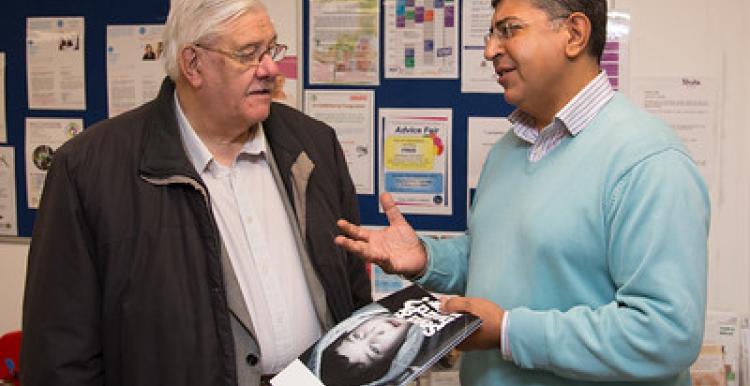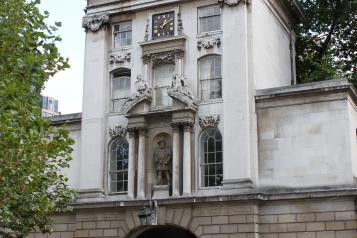Tier 4: stay at home

If you live in a Tier 4 area, you must follow the rules below from Sunday 20 December. This means that you cannot leave or be outside of the place you are living unless you have a reasonable excuse. You cannot meet other people indoors, including over the Christmas period, unless you live with them, or they are part of your support bubble. Outdoors, you can only meet one person from another household. These rules will not be relaxed for Christmas for Tier 4: you cannot form a Christmas Bubble in Tier 4.
Stay at home
If you live in Tier 4 you must not leave or be outside of your home or garden except where you have a ‘reasonable excuse’. A reasonable excuse includes:
Work and volunteering
You can leave home for work purposes, where your place of work remains open and where you cannot work from home (including if your job involves working in other people’s homes).
Essential activities
You can leave home to buy things at shops or obtain services from a business which is permitted to open in your Tier 4 area, but you should stay local. For instance you can leave home to buy food or medicine, or to collect any items - including food or drink - ordered through click-and-collect or as a takeaway, to obtain or deposit money (e.g. from a bank or post office), or to access critical public services (see section below).
Fulfilling legal obligations
You may also leave home to fulfil legal obligations, or to carry out activities related to buying, selling, letting or renting a residential property, or where it is reasonably necessary for voting in an election or referendum.
Education and childcare
You can leave home for education related to the formal curriculum or training, registered childcare, under-18 sport and physical activity, and supervised activities for children that are necessary to allow parents/carers to work, seek work, or undertake education or training. Parents can still take their children to school, and people can continue existing arrangements for contact between parents and children where they live apart. This includes childcare bubbles.
Meeting others and care
1 in 3 people who have coronavirus have no symptoms and will be spreading it without realising it.
You can leave home to visit people in your support bubble, or to provide informal childcare for children aged 13 and under as part of a childcare bubble, to provide care for vulnerable people, to provide emergency assistance, attend a support group (of up to 15 people), or for respite care where that care is being provided to a vulnerable person or a person with a disability, or is a short break in respect of a looked after child.
Exercise and recreation
People can also exercise outdoors or visit some public outdoor places, such as parks, the countryside accessible to the public, public gardens or outdoor sports facilities. You can continue to do unlimited exercise alone, or in a public outdoor place with your household, support bubble, or one other person.
Medical reasons, harm and compassionate visits
You can leave home for a medical reason, including to get a COVID-19 test, for medical appointments and emergencies, to be with someone who is giving birth, to avoid injury or illness or to escape risk of harm (such as domestic abuse),or for animal welfare reasons – such as to attend veterinary services for advice or treatment.
You can also leave home to visit someone who is dying or someone in a care home (if permitted under care home guidance), hospice, or hospital, or to accompany them to a medical appointment.
Communal worship and life events
You can leave home to attend a place of worship for communal worship, a funeral or a related event for someone who has died, or to visit a burial ground or a remembrance garden, or to attend a wedding ceremony - but funerals, linked events and weddings are all subject to limits on the numbers that can attend (see below).
Meeting others safely
In general, you must not meet with another person socially or undertake any activities with another person. However, you can exercise or meet in a public outdoor place with people you live with, your support bubble (or as part of a childcare bubble), or with one other person.
You should minimise time spent outside your home. When around other people, stay 2 metres apart from anyone not in your household - meaning the people you live with - or your support bubble. Where this is not possible, stay 1 metre apart with extra precautions (e.g. wearing a face covering).
You must not meet socially indoors with family or friends unless they are part of your household or support bubble.
You can exercise or visit a public outdoor place
- by yourself
- with the people you live with,
- with your support bubble,
- or, when on your own, with 1 person from another household.
Children under 5, and up to two carers for a person with a disability who needs continuous care are not counted towards the outdoors gatherings limit.
Public outdoor places include:
- parks, beaches, countryside accessible to the public, forests
- public gardens (whether or not you pay to enter them)
- allotments
- the grounds of a heritage site
- outdoor sports courts and facilities
- playgrounds
You cannot meet people in a private garden, unless you live with them or have formed a support bubble with them.
You must wear a face covering in many indoor settings, such as shops or places of worship where these remain open, and on public transport, unless you are exempt. This is the law. Read guidance on face coverings.
Support and childcare bubbles
There is separate guidance for support bubbles and childcare bubbles across all tiers. You can form a support bubble with another household if any of the following apply to you:
- you are the only adult in your household (any other members of the household having been under 18 on 12 June 2020), or are an under 18 year old living without any adults
- you live with someone with a disability who requires continuous care and there is no other adult living in the household
- you live with a child under 1, or who was under 1 on 2 December 2020
- you live with a child under 5, or who was under 5 on 2 December 2020, who has a disability and requires continuous care
You may need to change your support bubble if your circumstances change. Find out more about changing your support bubble.
You are permitted to leave your home to visit your support bubble (and to stay overnight with them). However, if you form a support bubble, it is best if this is with a household who live locally. This will help prevent the virus spreading from an area where more people are infected.
Video explanation from adults with learning disabilities
If you break the rules
The police can take action against you if you meet in larger groups. This includes breaking up illegal gatherings and issuing fines (fixed penalty notices).
You can be given a Fixed Penalty Notice of £200 for the first offence, doubling for further offences up to a maximum of £6,400. If you hold, or are involved in holding, an illegal gathering of over 30 people, the police can issue fines of £10,000.

